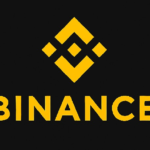Chainlink has launched Chainlink RuntimeEnvironment (CRE), a new software platform designed to deploy smart contracts across public and private blockchains with built-in tools for compliance, privacy, and data integration.
Announced at Chainlink’s SmartCon, CRE is part of the platform’s push to become the core infrastructure for financial institutions transitioning to blockchain-based rails.
Chainlink positions CRE as the foundation of the tokenization shift, noting that major institutions such as Swift, Euroclear, UBS, and Mastercard are adopting CRE “to capture the $867 trillion tokenization opportunity.”
CRE was first announced a year ago, with Chainlink likening the platform’s importance to the Java development environment for the internet age.
Unlike previous blockchain tools, CRE provides a single environment where developers can create smart contracts that work across multiple blockchains, leverage traditional financial messaging standards such as ISO 20022, and comply with regulatory requirements.
CRE will also include access to Chainlink’s existing services such as price feeds and proof of reserve systems.
Many major companies are already using this platform. JP Morgan’s Kinexys and Ondo used CRE to complete cross-chain payments, and UBS Tokenize and DigiFT leveraged CRE for the first-ever on-chain redemption of tokenized funds.
“Smart contracts are evolving into more complex formats that require synchronization between chains, connections to data and identity, as well as synchronization with many other existing systems,” said Chainlink co-founder Sergey Nazarov.
“These advanced institutional smart contracts used to take months or even years to function properly, but with the introduction of CRE, that time can now be reduced to weeks or even just days,” Nazarov added.
Chainlink plans to add privacy features in early 2026, including confidential computing for institutions that require secure handling of sensitive data. CRE currently runs on multiple blockchains and is open to developers.










